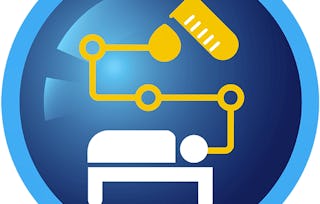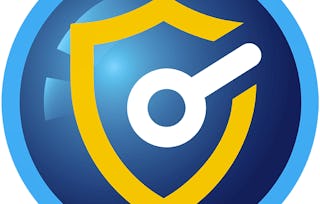This course teaches you how to explore the patient perspective on medicines using qualitative interviews. With the course as your digital supervisor you will step through designing, conducting and analyzing data in your own small interview study. The course combines video lessons, readings, quizzes and guided discussions.


Ends soon: Gain next-level skills with Coursera Plus for $199 (regularly $399). Save now.


(11 reviews)
What you'll learn
Explain central elements in the conduct of a qualitative research study exploring patients’ perspectives on medicines use
Plan, conduct and analyse your own small qualitative study on patient perspectives on medication use
Skills you'll gain
Details to know

Add to your LinkedIn profile
See how employees at top companies are mastering in-demand skills

There are 4 modules in this course
This module starts with a presentation of the different stages of a qualitative interview study. Next, an insight into the different relevant themes that can be explored via interviews is introduced. Finally, you will design a small qualitative interview study to be carried out throughout Weeks 2 to 4.
What's included
6 videos2 readings1 assignment1 discussion prompt
This module will support you in preparing an interview guide, and illustrates central elements to consider when creating the guide. Also, ethical considerations, strategies and practical advice for recruiting participants will be covered.
What's included
4 videos1 reading1 assignment1 discussion prompt1 plugin
In this module, you will conduct an interview to gain experience in how to understand patients’ perspectives of medicines use. You will develop your skills as an interviewer and practice those skills in real life. The skills involve paying attention to body language, empathy and active listening. This module will also introduce the most common pitfalls in interview situations, and allow time for reflections on your interviewer skills.
What's included
1 video2 readings1 assignment1 discussion prompt
This module will provide you with a deeper understanding of how to analyze qualitative interview data. You will learn the most important points to consider when transcribing interviews, and also get an overview of different types of analysis that are commonly used. You will practice your skills by transcribing and analyzing parts of your own interview. Finally, we will ask you to answer a questionnaire where you reflect on your experiences from all the modules of this course.
What's included
2 videos2 readings2 assignments1 discussion prompt
Instructors

Explore more from Patient Care
 Status: Preview
Status: PreviewUniversity of Copenhagen
 Status: Preview
Status: Preview Status: Free Trial
Status: Free TrialJohns Hopkins University
 Status: Free Trial
Status: Free TrialJohns Hopkins University
Why people choose Coursera for their career




Frequently asked questions
To access the course materials, assignments and to earn a Certificate, you will need to purchase the Certificate experience when you enroll in a course. You can try a Free Trial instead, or apply for Financial Aid. The course may offer 'Full Course, No Certificate' instead. This option lets you see all course materials, submit required assessments, and get a final grade. This also means that you will not be able to purchase a Certificate experience.
When you purchase a Certificate you get access to all course materials, including graded assignments. Upon completing the course, your electronic Certificate will be added to your Accomplishments page - from there, you can print your Certificate or add it to your LinkedIn profile.
Yes. In select learning programs, you can apply for financial aid or a scholarship if you can’t afford the enrollment fee. If fin aid or scholarship is available for your learning program selection, you’ll find a link to apply on the description page.
More questions
Financial aid available,
¹ Some assignments in this course are AI-graded. For these assignments, your data will be used in accordance with Coursera's Privacy Notice.














